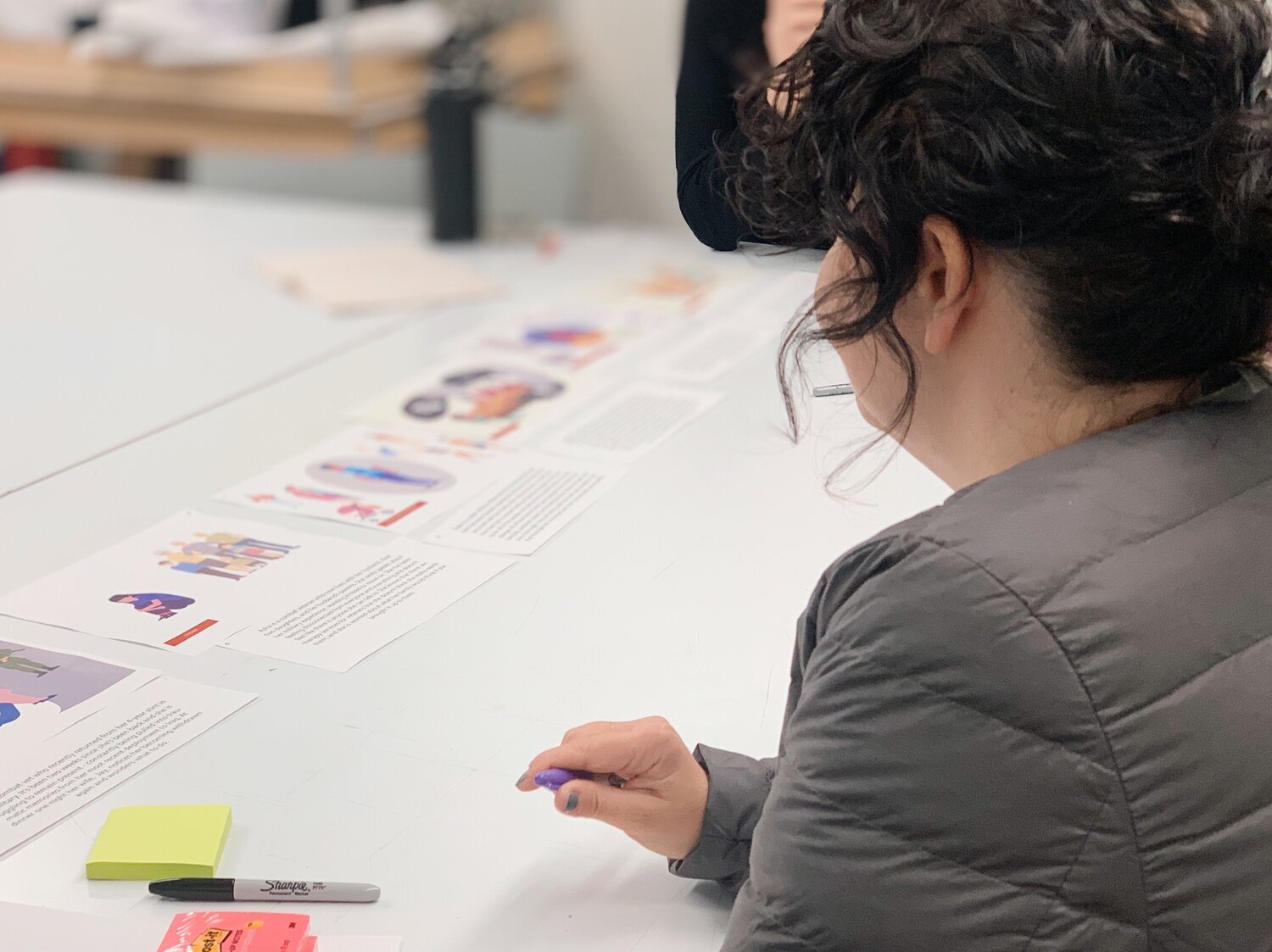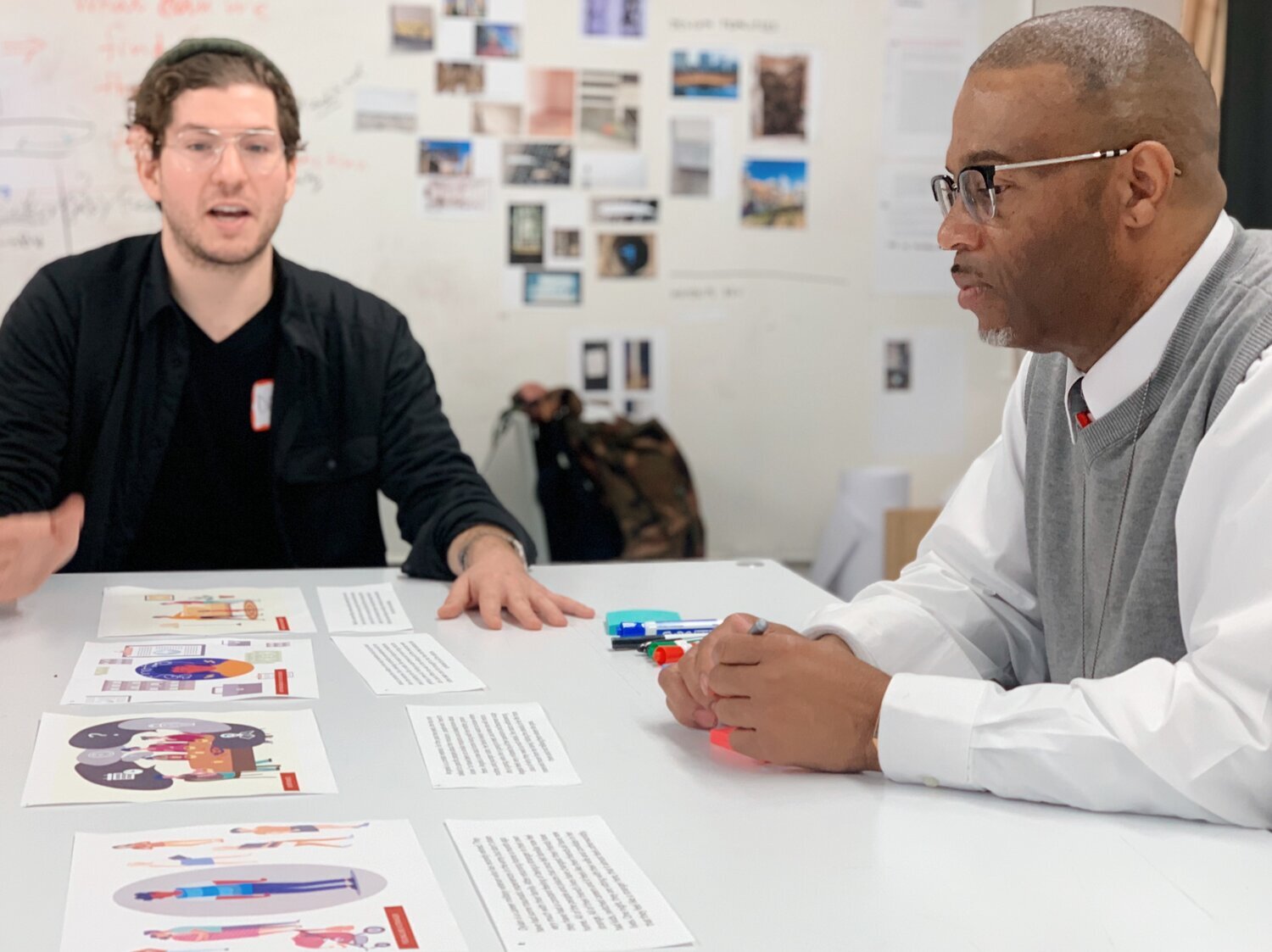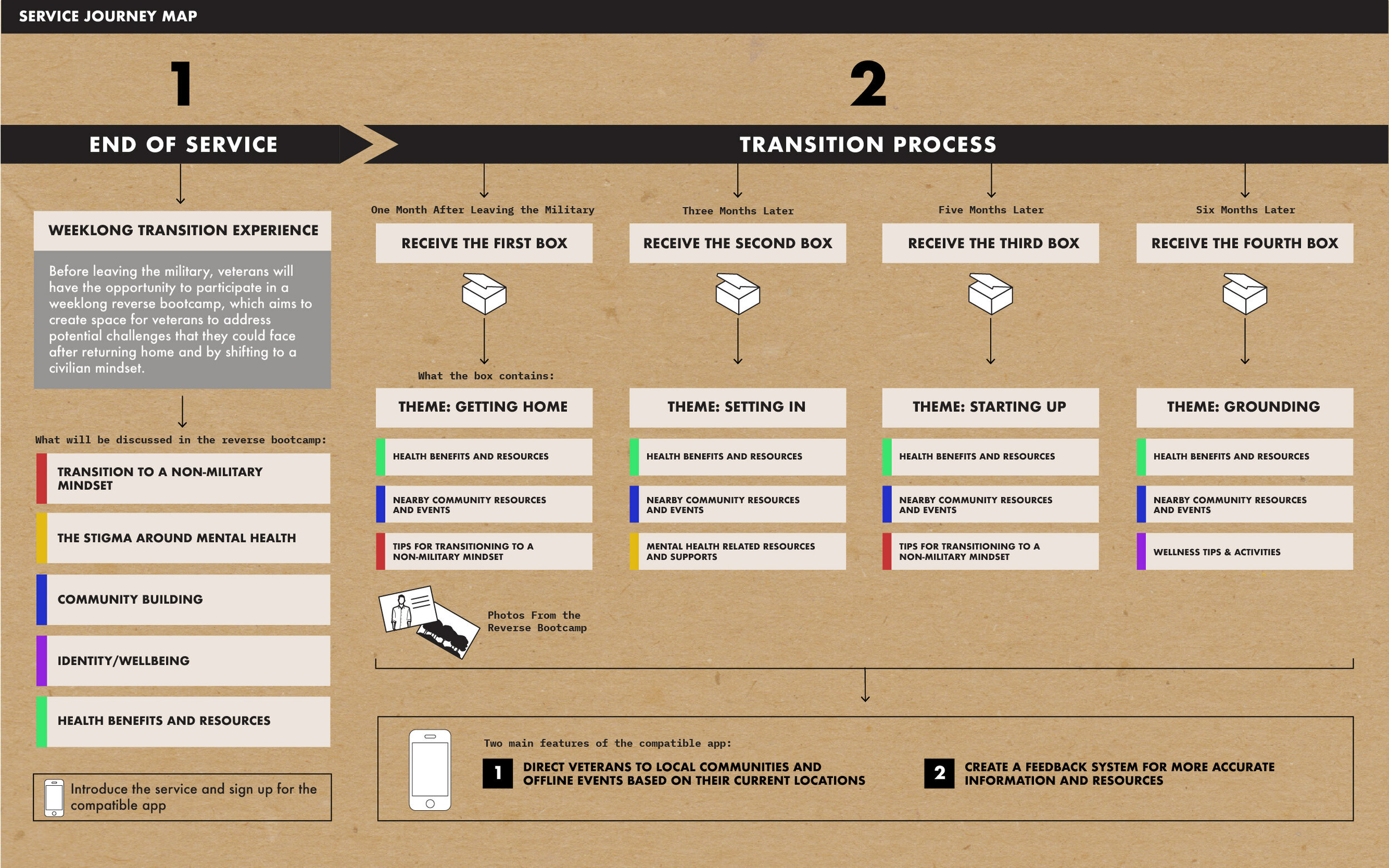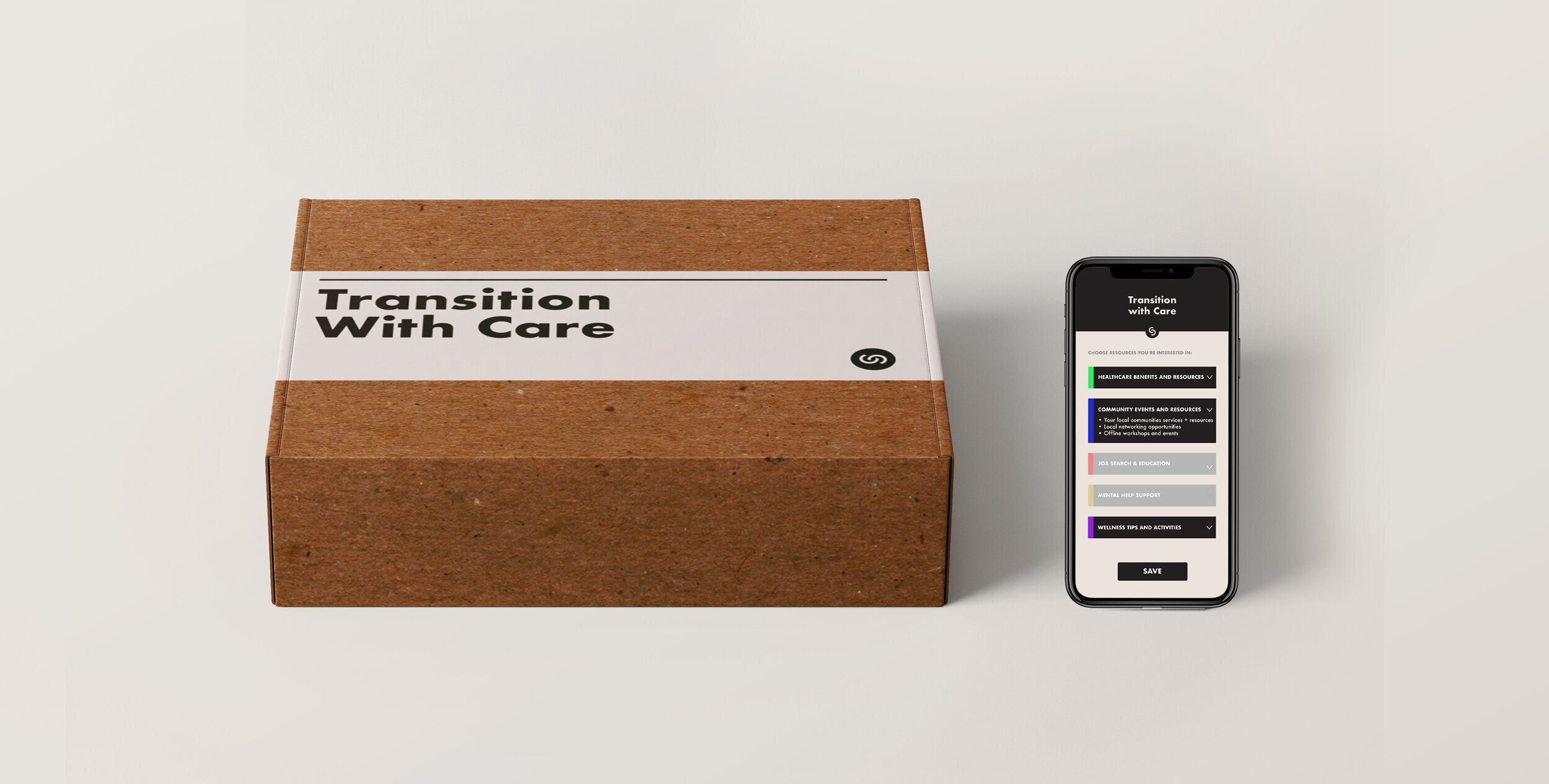Transition with Care
Design Strategy, Ethnography, Workshop Facilitation, UX Design
Team: Danni Pang & Meghana Srinivasan
Role: Strategy & ethnography Lead
Overview:
Military veterans often experience a jarring transition to civilian life, with existing programs like TAP focusing on logistics rather than lived experiences. We explored how reimagining TAP as an immersive, multi-month experience could better support veterans' transitions.
Process:
Through interviews with veterans and VA mental health experts, we identified three major challenges: loss of identity, difficulty navigating resources, and social isolation.
To address this, we conducted workshops with veterans and designers, exploring solutions that emphasized hands-on learning, structured guidance, and community integration
Result:
We proposed a ‘reverse bootcamp’—a structured, immersive program designed to bridge the emotional and logistical gap between military and civilian life. Instead of passive learning through PowerPoint slides, veterans would actively transition through experiential exercises that reinforce civilian identity, mental well-being, and practical adaptation. To ensure long-term impact, the program would be paired with a post-transition toolkit, including:
Personalized transition artifacts (journals, identity frameworks, and self-reflection exercises)
A mobile app with continued mental health check-ins, VA resources, and veteran-to-veteran peer support
Direct outreach from the VA, ensuring no veteran navigates the transition alone
By transforming TAP into a holistic, experience-driven journey, this initiative empowers veterans to navigate their transition with confidence, agency, and a support system that extends beyond their final day in uniform.





